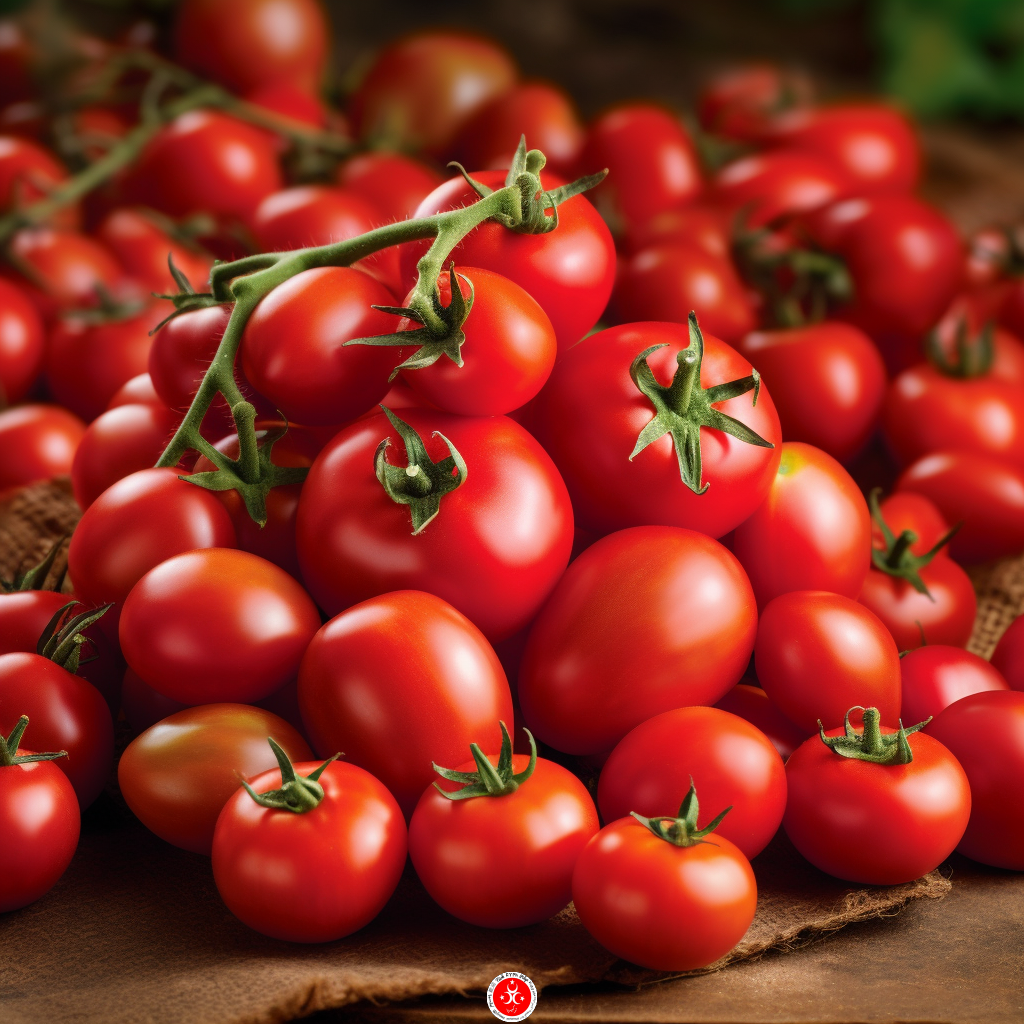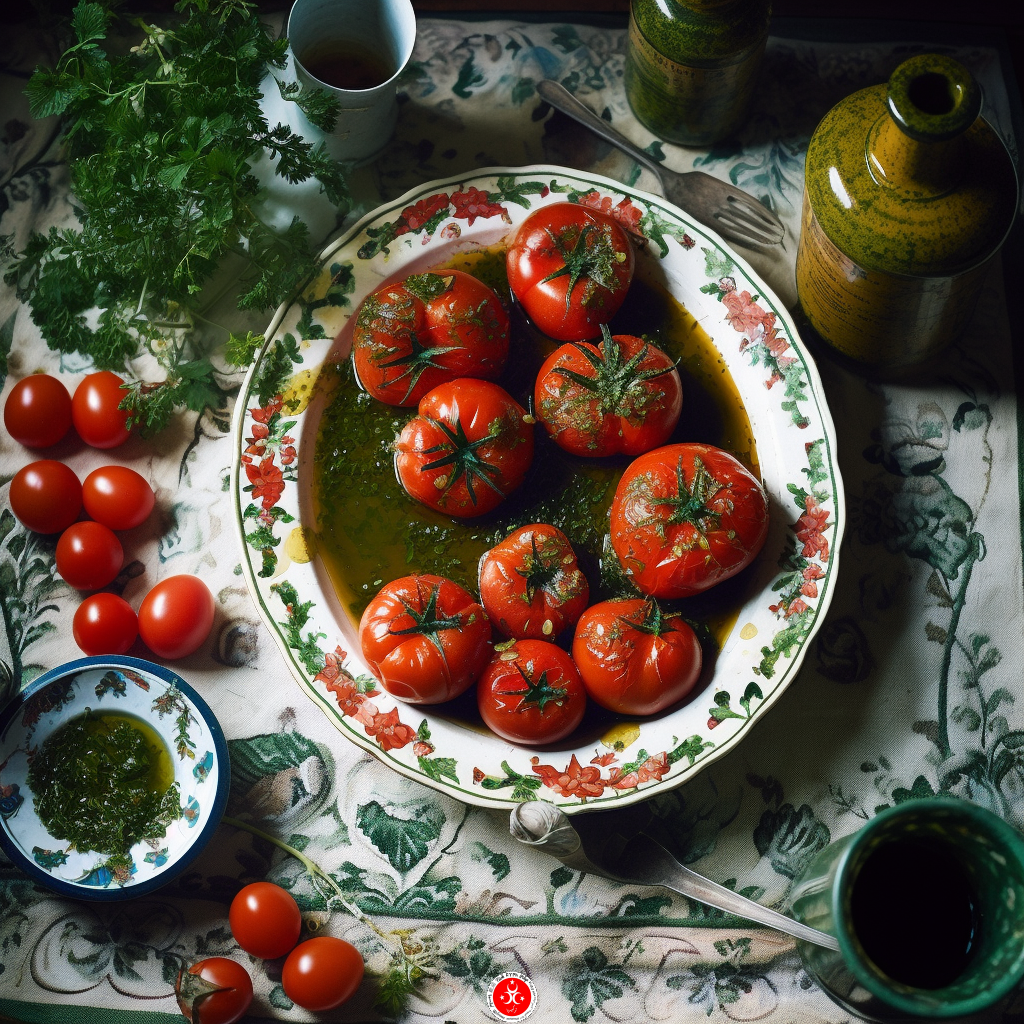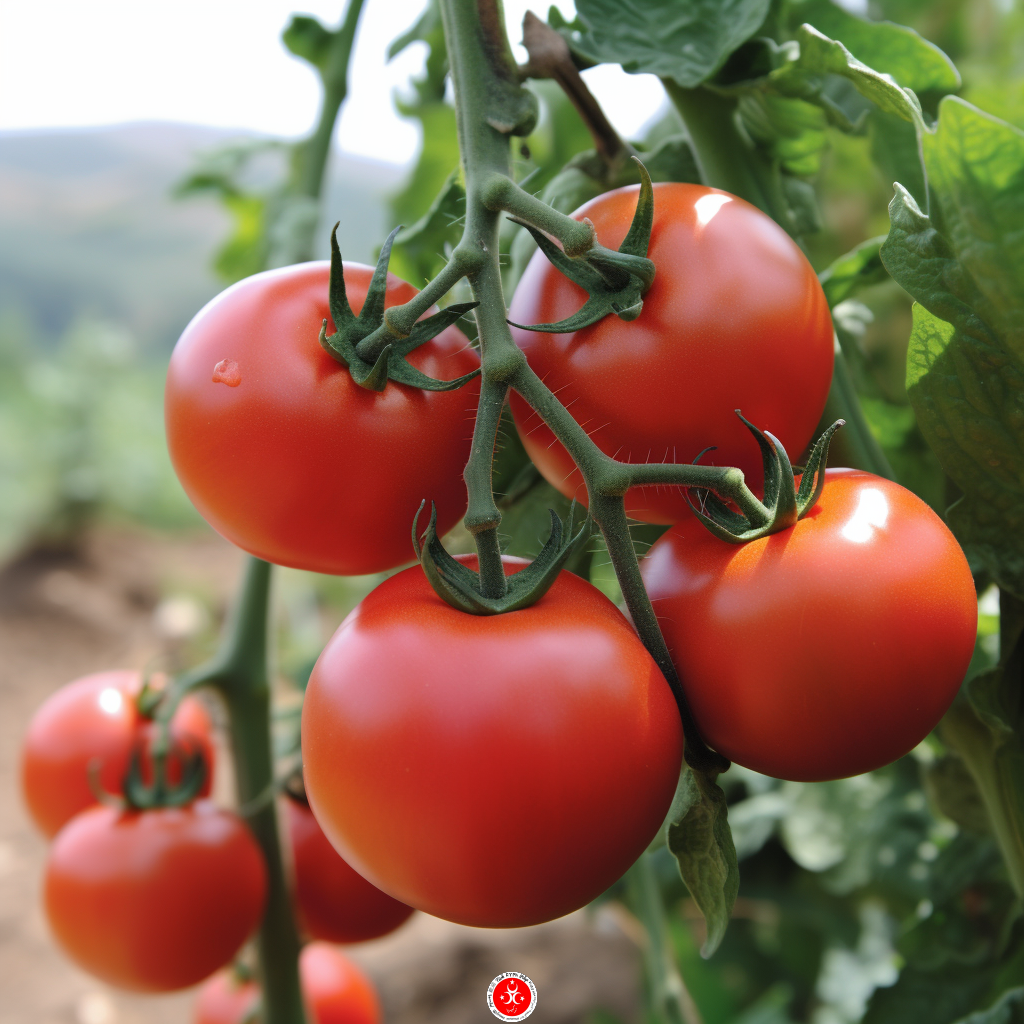Table of Contents
Discover the extraordinary world of Turkish tomatoes – from their rich history, diverse varieties, and culinary applications to their cultural significance and health benefits.
Turkish tomatoes, a culinary delight that has graced kitchens and tables across the globe, are truly a force to be reckoned with. Bursting with flavor and packed with nutrients, these juicy gems have a storied past that dates back centuries. In this article, we’ll dive into the captivating world of Turkish tomatoes, exploring their history, unique properties, and culinary applications. From their role in traditional Turkish cuisine to the innovative recipes inspired by these vibrant fruits, we’ll cover all things tomato!

A Rich and Flavorful History
The origin of Turkish tomatoes can be traced back to the early days of the Ottoman Empire, where they were first introduced to the region by European traders. Over time, the Turks cultivated their own varieties and incorporated them into their cooking, creating a unique culinary identity centered around these succulent fruits.
Ottoman Beginnings
Turkish tomatoes owe their existence to the global trade routes established during the Ottoman Empire. As the empire expanded, Turkish merchants encountered tomatoes in their journeys and brought them back to their homeland. Once established in the fertile soil of Anatolia, tomatoes began to thrive, and Turkish farmers cultivated distinct heirloom varieties.
The Anatolian Connection
The region of Anatolia, which comprises most of modern-day Turkey, provided the ideal conditions for growing tomatoes. Its Mediterranean climate, rich soil, and ample sunlight allowed for the development of numerous unique Turkish tomato varieties, each boasting its own flavor profile and culinary applications.

Turkish Tomatoes: A Symphony of Flavors
Turkish tomatoes come in all shapes, sizes, and flavors. Here are a few standout varieties that are worth seeking out:
- Çerkez Domates: A small, cherry-sized tomato that’s perfect for snacking or adding to salads
- Bursa Siyahı: A dark purple tomato with a smoky flavor, ideal for sauces and soups
- Sivri Biber Domates: A long, thin tomato with a mild flavor and thick flesh, perfect for stuffing or grilling
Culinary Wonders with Turkish Tomatoes
Turkish tomatoes are incredibly versatile and can be used in a wide range of dishes, from traditional Turkish recipes to modern fusion cuisine. Here are some popular ways to enjoy these flavorful fruits:
- Meze: Turkish tomatoes make fantastic additions to meze platters, where they can be served raw, marinated, or roasted alongside olives, cheese, and other tasty bites
- Salads: A classic Turkish tomato salad features chopped tomatoes, cucumbers, onions, and parsley, dressed with lemon juice, olive oil, and sumac
- Menemen: This popular Turkish breakfast dish consists of scrambled eggs cooked with tomatoes, onions, and peppers, often served with crusty bread
The Cultural Significance of Turkish Tomatoes
Turkish tomatoes have deep cultural roots in Turkey, where they symbolize hospitality, abundance, and life. In many Turkish households, a fresh bowl of tomatoes is a staple on the dining table, and their vibrant red color is believed to bring good fortune and happiness.

Health Benefits of Turkish Tomatoes
Turkish tomatoes are not only delicious but also packed with health benefits. They’re an excellent source of:
- Vitamin C: Boosts the immune system and promotes healthy skin
- Lycopene: A powerful antioxidant that may help protect against certain types of cancer and cardiovascular disease
- Potassium: Essential for maintaining proper fluid balance and supporting healthy blood pressure
- Fiber: Aids in digestion and helps maintain a healthy weight
A Nutrient Powerhouse
In addition to these key nutrients, Turkish tomatoes also contain a variety of other vitamins and minerals, including vitamin A, vitamin K, and folate. Incorporating these juicy fruits into your diet is an easy way to boost your nutritional intake while enjoying a burst of flavor.
Frequently Asked Questions
Here are some common questions about Turkish tomatoes:
- What makes Turkish tomatoes different from other tomatoes Turkish tomatoes are unique due to their diverse range of flavors, textures, and colors. They are also deeply rooted in Turkish history and culture.
- Can I grow Turkish tomatoes in my garden Yes, you can grow Turkish tomatoes in your garden, provided you have access to seeds or seedlings of the specific varieties. Be sure to research the ideal growing conditions for each type to ensure a successful harvest.
- Are Turkish tomatoes available in supermarkets Depending on your location, you may be able to find Turkish tomatoes in your local supermarket or specialty grocery store. Alternatively, try looking for them at farmers’ markets or online retailers.
- How should I store Turkish tomatoes To preserve their flavor and texture, store Turkish tomatoes at room temperature, away from direct sunlight. Avoid refrigerating them, as this can cause them to become mealy and lose their taste.

Conclusion
Turkish tomatoes are a true culinary treasure, steeped in history and bursting with unique flavors. They play a vital role in Turkish cuisine and culture, and their nutritional benefits make them a fantastic addition to any diet. Whether you’re enjoying them in a traditional dish, incorporating them into your own culinary creations, or simply savoring them on their own, Turkish tomatoes are sure to delight your taste buds and transport you to the vibrant world of Turkey.





